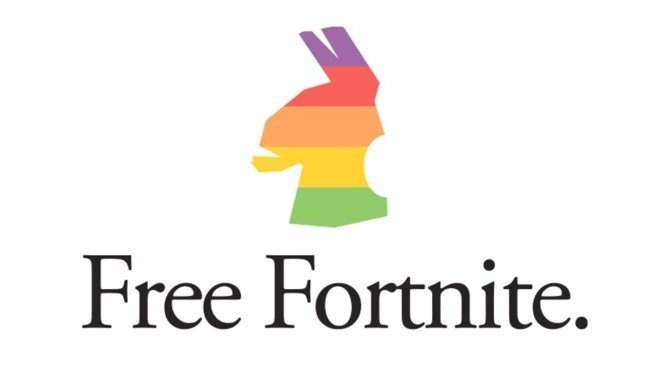Court documents filed by Epic Games claim that the company has been damaged by Apple's control over the App Store despite its own contractual violation, and calls out "arbitrary" review decisions.
In one of the final steps before the Apple versus Epic dispute enters trial in May, both Apple and the "Fortnite" developer has filed a "Findings of Fact and Conclusions of Law" document with the Northern District of California. Epic's 365-page submission sets out the company's case against Apple regarding the App Store.
Epic's document, released publicly in a lightly redacted form, is divided into almost a dozen sections, each of which concentrates on a different element of the dispute. However, much of these sections recount the history of the dispute, and the specific arguments boil down to two elements.
Epic Games argues that Apple operates the App Store from business rather than genuine security reasons. And Epic maintains that it has been, and continues to be, damaged by how Apple operates its store.
iOS is not macOS
Central to the game developer's case is that Apple claims it has to operate the App Store as it does, specifically in order to keep iOS safe. Epic points out, at length, that Apple also says macOS is highly secure - and does not force developers to sell only through the Mac App Store.
Apple's choice to make the App Store the exclusive means for distribution of iOS apps was a business decision; it was not necessary to ensure the security of the iOS ecosystem.Notably, Apple made a different business decision on the macOS operating system, which runs on Apple's Mac computers. On macOS, Apple allows developers to distribute their apps outside of Apple's own app store. macOS is a template of an open platform that Apple itself has held out to the world as secure - a place where users can download apps from the App Store or from other sources "worry free".
The security of iOS is derived primarily from the operating system itself and the hardware on which it runs. Indeed, iOS was modelled after macOS and inherited many of its core architectural features. But iOS offers even more robust operating system-based security mechanisms. Apple could easily implement security features to support open distribution on iOS without restricting app distribution to the App Store, just as it does with macOS.
Epic also takes aim at Apple's often repeated assertion that its App Review process is robust, and fair. The "Fortnite" developer says that this argument is pretextual, or dubious.
Apple points to its App Review process and asserts that there are security benefits that flow from funnelling all apps through the App Review process, but that is pretextual. Apple's App Review Process does little to keep iOS devices secure. It is cursory and has historically lagged behind the state of the art in terms of use of the automated tools needed for robust security checks. Many apps that should have been rejected under Apple's own guidelines have been approved, and apps that should have been approved have been rejected. Developers have faced an inefficient and opaque app review process riddled with arbitrary decisions and errors coupled with poor customer service.Moreover, the manual portion of Apple's App Review process screens primarily for non-security issues— including specifically for anti-competitive purposes. For example, Apple has used the App Review process to reject competitive threats even when the apps complied with Apple's then-prevailing guidelines. And Apple has used App Review to preference its own apps over competing third-party apps to the detriment of consumers and developers.
Epic cites internal Apple documents in which Eric Friedman, head of the company's Fraud Engineering Algorithms and Risk (FEAR) unit likened App Store defenses to a "bringing a plastic butter knife to a gunfight." Friedman in past correspondence said Apple's review process was "more like the pretty lady who greets you...at the Hawaiian airport than the drug-sniffing dog," reports the Financial Times.
Epic Games continues to be damaged by Apple
Other developers have reportedly found that being featured by Apple in its promotions such as "Game of the Day," can increase downloads by up to 800%. Epic Games, however, says such promotions "had limited marketing value," and also led to repeated leaks from Apple.
"Apple's marketing team created numerous problems for Epic," says the filing. It lists "multiple occasions," and singles out the launch of "Fortnite Chapter 2," reportedly the "largest update to the game since its original launch."
In October 2019, Mike Schmid, Apple's business development manager responsible for Fortnite, reached out to Mark Rein, Epic's Vice President, requesting assets in advance to support a promotion for Fortnite's upcoming launch of Chapter 2, the largest update to the game since its original launch.Because Epic was planning a surprise release of Chapter 2, Schmid repeatedly assured Epic that he would take personal responsibility for ensuring that Apple did not leak the concept. Despite these assurances, Apple leaked Fortnite Chapter 2 artwork ahead of the planned launch, spoiling the surprise for Fortnite players on all platforms.
Epic also says that it had been forced to "spend considerable engineering time and resources" to keep up with "Apple's changing developer rules." For instance, it claims to have spent "more than a year" updating "Fortnite" to work under iOS 12 and Xcode 11.
Epic Games knew Apple might remove "Fortnite"
It's already been revealed that rather than being surprised by Apple's — and Google's — decision to remove "Fortnite" from the App Store, Epic Games planned it. The new court filing confirms that, but also details why the company believed the move was necessary.
"Epic understood that Apple might respond to the introduction of a competing payment solution by removing Fortnite from the App Store," it continues. "But Epic also viewed it as critical to demonstrate through public action that competition for payment solutions could exist on iOS, and that there would be strong demand from consumers for such competing options."
In essence, then, Epic Games intentionally implemented as much of the the store-within-a-store idea it had failed to persuade Apple to adopt.
The court document suggests that Epic Games may have been more surprised at Apple's move to close all of its developer accounts. Until a federal judge prevented Apple from doing so, it had reportedly planned to also remove Unreal Engine, the platform made by Epic Games but used by countless other developers.
"The loss of Unreal Engine's ability to support these important platforms would cause irreparable harm to Epic's product offerings, as many developers would select a competing engine for their new projects or for the next versions of their games," says the filing. "Third-party developers who rely on Epic's engine and support would be in jeopardy of losing the long-term support of Epic and its Unreal Engine tools for use in connection with Apple devices."
Epic Games, Inc, versus Apple, Inc, goes to jury trial in front of Judge Yvonne Gonzales Rogers, on May 3. Judge Rogers has limited in-person attendance because of coronavirus concerns.
Stay on top of all Apple news right from your HomePod. Say, "Hey, Siri, play AppleInsider," and you'll get latest AppleInsider Podcast. Or ask your HomePod mini for "AppleInsider Daily" instead and you'll hear a fast update direct from our news team. And, if you're interested in Apple-centric home automation, say "Hey, Siri, play HomeKit Insider," and you'll be listening to our newest specialized podcast in moments.
 William Gallagher
William Gallagher









-m.jpg)






 Christine McKee
Christine McKee
 Malcolm Owen
Malcolm Owen

 Sponsored Content
Sponsored Content

 Amber Neely
Amber Neely











8 Comments
I can’t wait to run fortnight on the new epicPhone, but I do want to pay using Apple’s payment system. What a great idea then epic could set whatever rules it wants
So Epic was harmed by not having Apple sign an NDA about chapter 2. Why did they if there was even a slight risk of a leak?
“Irreparable harm”

I like how they (Sweeney?) use this every time they mention their own fu** up.